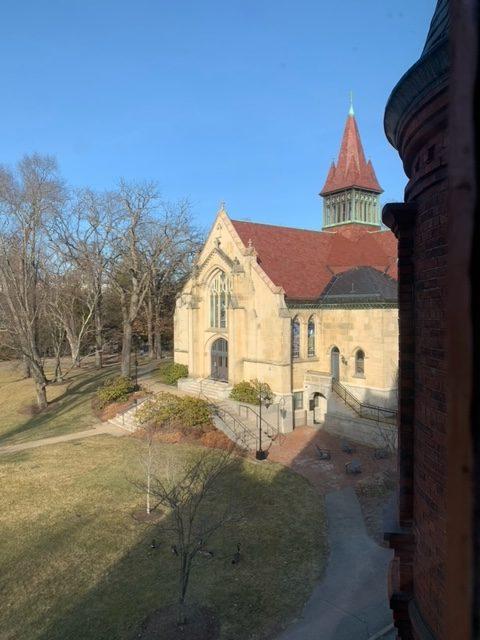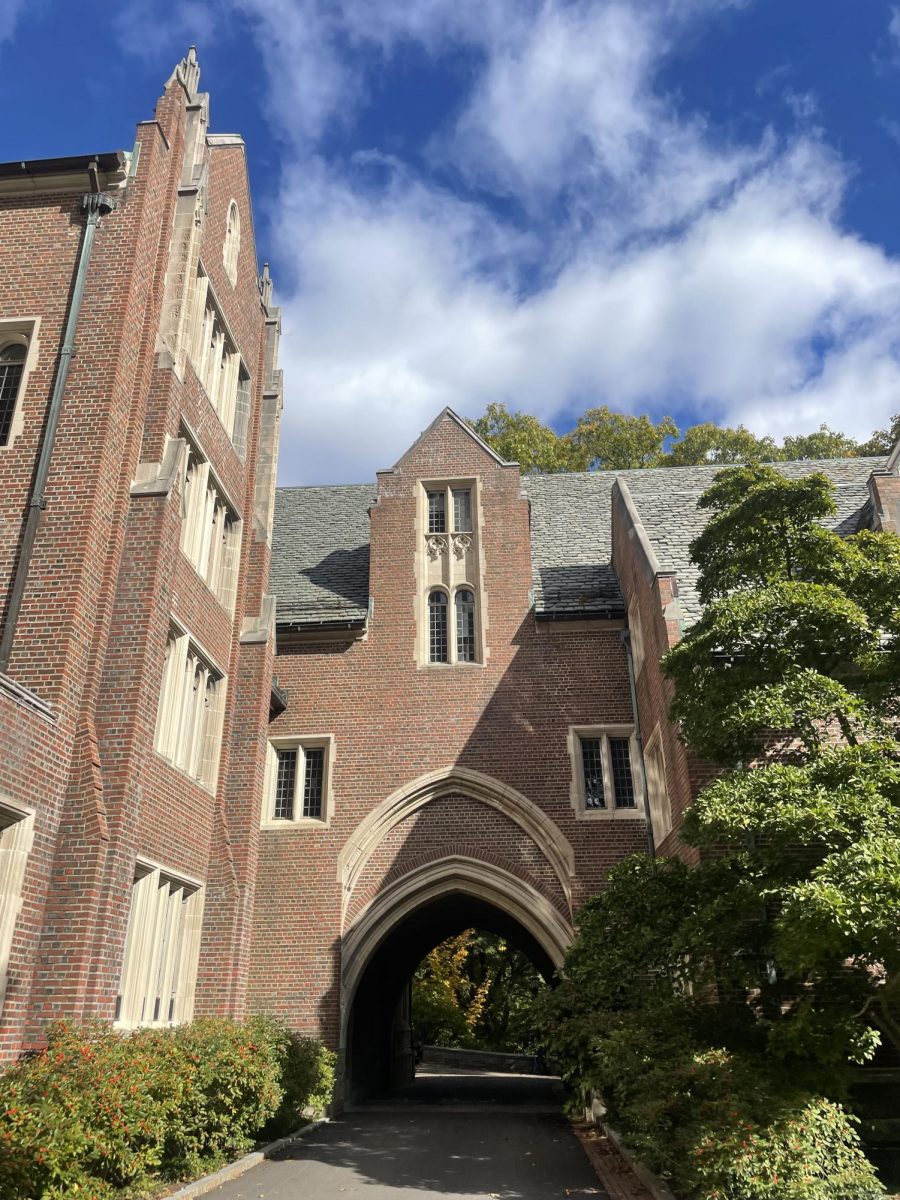On April 11, 2022, Darshana, Wellesley’s Hindu student organization, announced on Instagram that Wellesley now had a Hindu chaplain, Chaplain Rumni Saha, after three academic years without a Hindu chaplain in place.
According to Dean of Religious and Spiritual Life Jacquelina Marquez, the delay in hiring a new Hindu chaplain was due to a hiring freeze starting in Spring 2020. Dean Marquez noted a sense of relief amongst students and the staff of the Office of Religious and Spiritual Life and students with the hiring of Chaplain Saha, but also two new chaplains: Natalie Malter, the new Unitarian Universalist Affiliate Chaplain, and Tonia Petty, the new Harambee House Affiliate Chaplain.
“Right when we were about to post these positions on our human resources site, the pandemic hit and I think we all just went into survival mode,” she said. “I think as a staff, we felt a little bit incomplete because we had these three vacant spots that we couldn’t fill but now I think with Chaplain Rumni, Chaplain Natalie and Chaplain Tonia, it feels like we’re complete now.”
Dean Marquez also directed students to the Why Talk to a Chaplain? and Avoiding Unhealthy Religious Organizations on the Office of Religious Life’s website for support. She also emphasized that Chaplains are a confidential resource and are available to students for a range of issues.
Chaplain Saha holds a masters degree in education from Boston University, and is currently pursuing a masters in divinity from BU’s College of Theology. She identifies as a Hindu, a Unitarian Universalist and a Humanist. As Hindu chaplain, she hopes to bring more of Hinduism’s pluralism and inclusivity to Wellesley.
“I definitely hope to make Darshana vibrant again,” she said. “My hope is that I’m going to bring the pluralism and inclusivity [of Hinduism] to the Wellesley community. I want others to understand the wisdom and the richness of Hinduism.”
Although Chaplain Saha did join late in the Spring semester, she hopes to get to know student groups and the community here better in order to be ready as a resource for students in the fall of 2022.
“[I’ve been] talking to people like the international students office, and just about every community on campus,” she said. “I’m trying to exactly what the needs are and what would be relevant so that I can plan better for the fall.”
While Chaplain Saha is not at the status of a full chaplain yet, she and Dean Marquez both hope for her to be a resource for students regularly. Dean Marquez also noted the limitations of the ORSL budget in hiring new staff. Of the seven chaplains on the staff, only one is full-time.
“ORSL depends heavily on donations,” she said. “We, for many years, have been heavily funded primarily by donations from alumnae, [and] from donors that find out about our work. That’s wonderful in one sense that people care about our work and are excited in supporting us. On the other hand, when donations go down for a reason, like during the pandemic, donations went down everywhere, and it’s hard to kind of function when ORSL depends that much on it.”
Chaplain Saha also hopes to dispel some misconceptions about Hinduism in her time at Wellesley.
“There’s a lot of conflation — not just on this campus — because of what is happening in India, of Hinduism with Hindutva, which [has] hijacked the basic tenets of Hinduism,” she said. “I always say that I’m a big believer in honest and open conversations. It doesn’t mean that we can always come to an agreement or a consensus, but it’s really important to have those conversations to understand what somebody is thinking and where they’re coming from.”
ORSL student worker Riya Balachandran ’24 also hoped that Chaplain Saha would bring a more progressive perspective to Wellesley’s Hindu community, after having had conversations with her already.
“It was really good to talk about how she wanted to include more activism in the Hindu community,” she said. “[Chaplain Saha] was talking about relations between the Hindu and Muslim communities, our positionality on issues like Black Lives Matter and like other social justice movements and increasing social justice in the Hindu community.”
Darshana e-board member Kavya Parameswar ’24 added that, in interviewing Chaplain Saha, she found that Chaplain Saha’s perspective was “absolutely perfect” for Wellesley, as she has previously done work to talk about diversity and inclusivity in the Hindu community.
“People just associate Hinduism with being Indian, and obviously that’s not right because India is a very secular country, and there’s a whole diaspora of Hindu identities,” Parameswar said. “That’s another thing we wanted to make sure, was that the chaplain would be willing to talk to any student of any Hindu identity and be able to accept them, even if they weren’t just Indian Hindus.”
Chaplain Saha also added that she believed Hinduism is generally misunderstood.
“People think that [Hinduism] is just worshiping all these deities, [that] it’s idol worship, but it’s actually a monotheistic religion,” she said. “No matter how you practice, whether you are, Christian or Muslim, for example, we’re all kind of different rivers going into the same stream.”
Chaplain Saha also noted that she is here at Wellesley to be a resource for students and wanted to focus on making Darshana a more active organization.
“I feel like the students are just looking for an anchor,” she said. “They’re looking for a space where they can belong, [which] they can call their own, where they can come in and not feel like they are being understood… Students are really looking for someone to not just advocate on their own behalf but just an adult to be there and oversee and kind of cheer them on.”
Parameswar also added that she hopes for Chaplain Saha to be a source of support for Hindu students at Wellesley.
“Rumni will be someone to talk to,” Parameswar said. “She’s just another [person] who can make you feel at home on campus. You shouldn’t be afraid to talk to her about anything. A lot of people go back to their religion when they’re in really tough times.”






